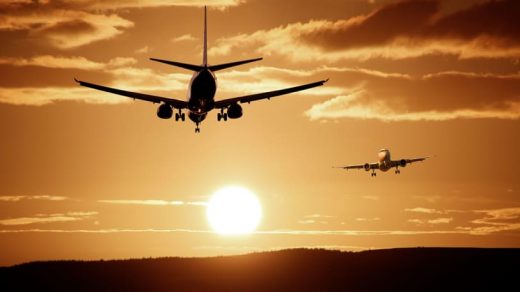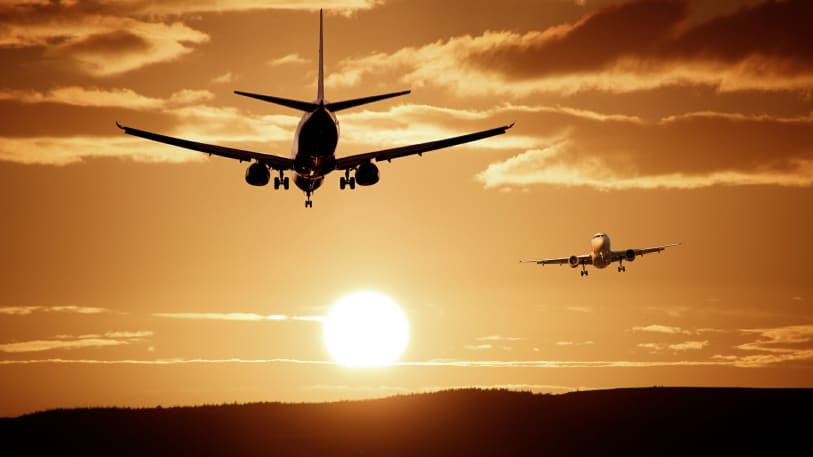What I Wish I Had Considered Before Becoming A Digital Nomad
I was sitting in a hotel conference room, listening to talks about productivity and building businesses. Between sessions, the attendees exchanged suggestions about workflow tools, scaling strategies, and coworking spaces. It felt like a scene out of a Silicon Valley tech conference, except it wasn’t. It was the annual Nomad Summit in Chiang Mai, Thailand. The city’s affordability, warm weather, availability of coworking spaces, and reliable internet connection has in recent years earned the city a place as a digital nomad hotspot.
I remember having a weird feeling about the way the presenters promoted this lifestyle. They made building a business while traveling seem so effortless. Despite the fact that I’d just quit my corporate law job and was desperate for some freedom, the whole anti-nine-to-five mentality just didn’t resonate with me. But I figured that in time, I would love the lifestyle. After all, why would I not be happy with working while I traveled the world?
To be fair, unlike most most digital nomads, I knew from the start that my journey would be temporary, as I was planning to attend graduate school in New York later that year. But I did toy with the idea of continuing with this lifestyle after graduation. At the end of my trip, however, I was excited to put down roots and sign a long-term lease.
Related link: The Digital Nomad’s Guide To Working Anywhere On Earth
Looking back, my lack of excitement was probably a hint that I wasn’t suited to the nomadic life. There were many things that I probably should have thought about before packing my bags and thinking, “I’ll figure everything out later.” I spoke to some former digital nomads to find out what advice they’d give to those thinking about hopping on the long-term traveler bandwagon.
Be Honest About Why You Want To Travel
I like to think that my reasons for trying out the work-travel lifestyle were because I wanted to build character. But if I was really being honest, I was burnt out with my corporate life and wanted to escape.
Anna Wickham, an entrepreneur and former digital nomad who now runs a digital marketing business in Oklahoma City, writes in her blog that her decision to move abroad was a “reaction” other than an “action.” “It was time for me to face ‘the real world,’” she wrote, “and I couldn’t bear the thought. The monotonous nine to five, the drudgery about my job, the total lack of freedom and mobility, it all made me ill. So I didn’t just walk in another direction. I ran like hell.“
But after months of living luxuriously in Vietnam on a modest income, she began to question her purpose. She tells Fast Company that she asked herself, “What is this really all about? Is it just to feel really cool?” As Wickham put it, she called her own bluff and realized that she would be able to grow her business better and faster if she was based in the U.S.
Figure Out The Work Part First
Lauren Juliff, a travel blogger who recently made the decision to establish a home base in Portugal, said that she wishes she spent more time working on her business and figuring out “the kinks of working online” before embarking on the digital nomad lifestyle. “I think most people figure it out on the road,” Juliff says, but they “focus more on the traveling aspect,” and don’t consider the amount of time they need to spend working.
There is often a mismatch between how much travel you want (and expect) to do versus how much time you’ll actually need to toil away on your laptop. Based on my experience, the latter almost always takes up a lot more hours than what you budgeted for.
Consider How You Will Build Relationships
Mark Manson, author of The Subtle Art Of Not Giving A Fuck, says that one of the things he found most difficult about being a digital nomad was creating and maintaining meaningful relationships. “You meet tons and tons of people from diverse backgrounds, but you never form deep friendships or relationships. And if you do, it’s usually with somebody else who’s nomadic, and they’re always in a different country, so you only see them twice a year.”
This is something that Wickham and Juliff both echo. Wickham admits that aside from making her business a priority, one of the driving forces behind her move back to her hometown was the realization that she would always have to say goodbye to all the friends she made on the road.
Be Realistic About Your Priorities And Values
Jodi Ettenberg, writer of the travel blog Legal Nomads, urges travelers who have chosen this lifestyle to think about how they’re really feeling about their experience. “The lack of anchor in terms of a home base, or lack of consistency, does exacerbate anxiety for many long-term travelers, even those not usually predisposed to overthinking. It’s a great way to learn and live and explore the world, but there is no shame in saying, you know, this is no longer for me.”
Manson says that his decision to move back to the U.S. was largely due to a change in values and priorities. “The way I describe it is diminishing returns to travel. So if you’ve only been to four countries, country No. 5 is really, really exciting.” If you’ve been to 50 countries, he said, you start to see country No. 51 in terms of how similar it is to other places you’ve visited. In other words—it becomes less novel and exciting.
Manson found himself increasingly valuing comfort and forming deep relationships over partying and fast-paced travel. When he realized what was most important to him, he says that the “scale tipped” in favor of a home base.
Make Your Own Definition of Freedom
One of the things I noticed during my short digital nomad stint was the way the term “freedom” was paraded around. It seemed like there was a specific definition of it: working online on a location-independent business with no fixed home base. Often, that message was accompanied with a picture of the person on a beach or by the swimming pool with his/her laptop.
It took me a while to realize and accept that while this is some people’s definition of freedom, it definitely isn’t mine. Wickham notes in her blog that “having a ‘lifestyle’ business doesn’t necessarily mean traveling the world,” and that very few entrepreneurs decide to go location-independent because it makes financial sense for their business. In reality, she notes, it’s that they can make “just as much money living abroad” or even earn less in exchange for the freedom to move around as they please.
Manson believes that the life of perpetual travel isn’t one that’s sustainable in the long term. “I think some people are built to do it longer than others, but it definitely doesn’t strike me as something that can be maintained over multiple decades.”
Wickham isn’t so sure, saying that digital nomadism hasn’t been around long enough for her to make that judgment. One thing she is sure about, though, is that she doesn’t regret her decision to move back to her hometown. When asked whether there was any aspect of the life that she missed, she paused and said, “Gosh I’m so busy, I don’t really think about it that much.”
(34)














